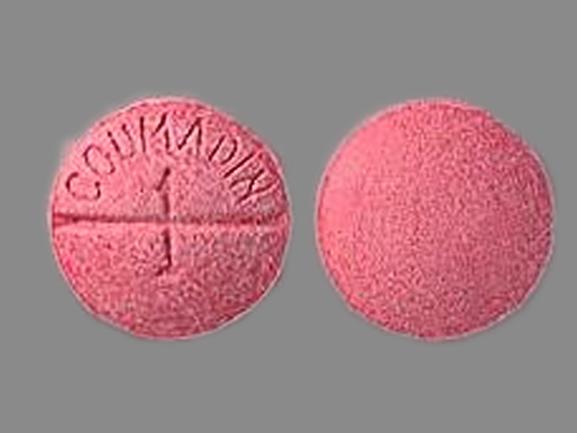Coumadin for Prosthetic Heart Valves, Mechanical Valves - Thrombosis Prophylaxis User Reviews
- Dot...
- Taken for 10 years or more
- August 10, 2020
"Coumadin is the only drug that has worked for me in 23 years, and now it is no longer available. Because of Warfarin, I had to be shocked back to life 3 times. Now I have been put on Jantoven since June 22, 2020, because I can no longer get Coumadin. Since then, I have lost weight and appetite, along with a bad cough with yellowed goop. What am I supposed to do? How has this happened? When a drug works for people and then it is just stopped with no notice, and the drugs that are available don't work, then what?"
- Anonymous
- December 31, 2020
"I had open heart surgery in 1973. A Bjork Shiley Steel Cage Ball Valve was implanted. I had some problems in the following years because of blood clots. I was put on the medication Coumadin, and the problem was resolved. Jump forward to 2012. My insurance would not cover the medication, so my doctors and I tried to switch to a generic (Warfarin). I was having complications with the Warfarin, so I was instructed to stay on 'Name Brand' Coumadin and to never attempt to change to a generic again. Now Bristol Myers Squibb has discontinued making 'Name Brand' Coumadin; therefore, I am being forced to make that change. When my supply runs out, I will have to make that forced change! By the way, the BMS manufacturer that supplied the USA is located in Puerto Rico. There is another location that supplies France, Germany, and Italy, but BMS will not tell me where it is and/or how to get the drug from them, wherever they are. Can anyone help me, any suggestions?"
Frequently asked questions
- Does Green Tea interact with any drugs?
- What is the antidote for warfarin?
- Fish Oil and your Health
- What Effect Can Food Have While Taking Medication?
- And...
- Taken for 10 years or more
- October 21, 2021
"I had a St. Jude mechanical valve implanted in 2011 and have been on Coumadin since. Now I hear they’re stopping making the brand name formulation? What am I supposed to do? My INR has been fluctuating between 1.8 and 4.6 weekly, and I get blood drawn once a week, and determining how much to take or not take is almost a daily battle. I’m going to need another similar medication now? I’ve been faithful to my schedule, and despite the constant daily dose changes, I’ve been doing okay. I hear that there are now better and less dangerous anti-clotting medications. This may be a good thing. There’s not just Coumadin available now. We’ll see. Insurance is still paying for it, so until they stop covering it, I will stay with Coumadin."
See also:
More about Coumadin (warfarin)
- Check interactions
- Compare alternatives
- Reviews (22)
- Drug images
- Side effects
- Dosage information
- Patient tips
- During pregnancy
- Support group
- Drug class: coumarins and indandiones
- Breastfeeding



"I have a St. Jude mitral valve prosthesis implanted 11/2002. I began anticoagulation therapy with Coumadin without any difficulty and a stable INR. The insurance company switched me to a generic warfarin with terrible results - headaches, unstable INR, including emergency need for stomach shots to restore INR levels rapidly. My cardiologist switched me back to the brand only - Coumadin, and for the past 16 years, I'm now 75 years old, I have taken the same dosage with no negative side effects and a consistently stable INR averaging 2.5 for a therapeutic range of 2.0 - 3.0. Now Coumadin has been discontinued by Bristol Myers Squibb with no notice or explanation, leaving me and others with no choice but to use generic warfarin. Why is this allowed to happen, and why are we constantly told there is no difference between the brand and the generic when, for a large number of patients, this is simply not true? Will anyone help us?"